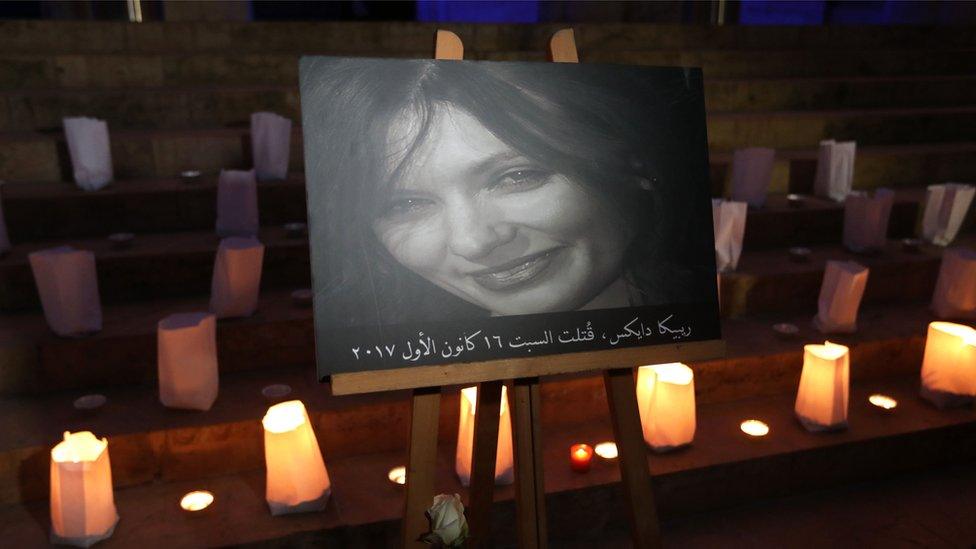Rebecca Dykes: Death sentence for killer of British embassy worker
- Published

A man convicted of raping and killing a British embassy worker in Lebanon has been sentenced to death, the country's state news agency, NNA, reports.
Uber driver Tariq Houshieh confessed to murdering Rebecca Dykes, whose body was found by the roadside in December 2017.
The 30-year-old had been strangled with a rope.
Lebanese judges routinely call for death sentences in murder cases, but no executions have been carried out since 2004.
The British embassy in Beirut said Ms Dykes was "much loved and is deeply missed", external, describing her as "a talented, devoted humanitarian, whose skill, expertise and passion improved the lives of many people".
The embassy said it hoped the court's decision would provide "a degree of closure" for those close to Ms Dykes, but added that the UK government continued to oppose the death penalty "in all circumstances".
Ms Dykes had been working for the Department for International Development since January 2017, helping Lebanon to cope with the influx of refugees from the war in neighbouring Syria.
She had reportedly been due to fly home to the UK for Christmas.
But she was abducted after leaving a bar in the popular Gemmayzeh district of Beirut where she went for a colleague's leaving party.
Her body was found close to a motorway on the outskirts of the city.
Police traced Houshieh's car on traffic management CCTV and he was arrested days after the killing.
He had previously served several prison sentences, a senior Lebanese security source told the BBC at the time of his arrest.

A candlelit vigil was held for Ms Dykes outside Beirut's National Museum
Her family set up the Rebecca Dykes Foundation, which aims to continue her work to improve the lives of refugees in Lebanon. In a statement after her death, they said she was "irreplaceable".
The University of Manchester also posthumously awarded her an Outstanding Alumni award in July 2019, saying that her work led to Syrian and Palestinian refugee communities "becoming more peaceful".

The death penalty in Lebanon
Death sentences are legal in Lebanon but an unofficial moratorium means that none has been carried out for 15 years
The country briefly resumed executions in 2004, external, executing two convicted murderers by firing squad and one by hanging
Although international and local activists have called for it to be abolished, the death penalty continues to have public and political support, according to a report by Lebanese human rights watchdog ALEF, external
In 2018, there were 82 people in prison who had been sentenced to death, a study found

Before her posting in Beirut, Ms Dykes worked for the Foreign Office as a policy manager for its Libya team and as an Iraq research analyst.
She graduated with a degree in social anthropology at the University of Manchester in 2005, and also had a master's in international security and global governance from Birkbeck, University of London.
A former pupil of Malvern Girls' College and Rugby School, she had also taught English at a Chinese international school. On social media, she said she was originally from London.
- Published18 December 2017

- Published18 December 2017
